Home> Company News> Optimizing Excavator Hydraulic Pump Pressure for Improved Performance
- AddressNorth Tan Street, Jinan,Shandong
- Factory Address123 Ubi Ave 3 #12-30 Frontier Singapore 408867
- Worktime9:00-18:00(Beijing time)
- Phone(Working Time)86 0531-8299 9952
Hydraulic pump pressure is a critical aspect of excavator performance. The hydraulic pump is responsible for supplying pressurized hydraulic fluid to power the digging, lifting, and swinging movements of the excavator. Without sufficient pressure, the excavator will struggle to perform these tasks, resulting in slower work progress and increased fuel consumption. Conversely, excessive pressure can cause damage to the machine and lead to safety hazards.
In order to achieve optimal excavator performance, it is crucial to understand the role of hydraulic pump pressure in the machine's operation. The hydraulic system operates on a closed-loop system, which means that the pressurized hydraulic fluid is continually circulated through the system to power the machine's movements. The hydraulic pump is responsible for generating this pressure by converting mechanical energy into hydraulic energy.
Insufficient hydraulic pump pressure can have a significant impact on excavator performance. For example, when digging, the excavator's bucket relies on hydraulic pressure to penetrate the ground and lift the soil. Without enough pressure, the excavator will struggle to dig effectively, resulting in slower work progress and increased fuel consumption.
Excessive hydraulic pump pressure can also cause problems. When pressure levels exceed the machine's capabilities, the system may overload, causing damage to the machine or creating safety hazards for the operator and those around the machine.
In conclusion, understanding the importance of hydraulic pump pressure in excavator performance is essential for optimal machine operation. Proper adjustment and monitoring of hydraulic pump pressure are crucial for achieving maximum efficiency, productivity, and safety on the job site.

Factors Affecting Excavator Hydraulic Pump Pressure
Excavators are powerful machines that rely on hydraulic pumps to operate their many functions. These pumps provide hydraulic pressure that enables the machine to dig, lift, and move heavy loads with ease. The hydraulic pump pressure is critical to the excavator's performance, as it directly affects its power and efficiency. Several factors impact hydraulic pump pressure in excavators, and understanding these factors is essential to ensure optimal performance.
One of the main factors affecting hydraulic pump pressure is oil viscosity. Hydraulic oil viscosity determines the resistance to flow within the system, which affects the pressure level. High viscosity oils increase resistance and reduce flow, leading to lower pressure levels, while low viscosity oils reduce resistance and increase flow, leading to higher pressure levels. Therefore, choosing the right hydraulic oil with the appropriate viscosity is crucial to maintain the correct pressure level.
Another factor that impacts hydraulic pump pressure is pump speed. Pump speed determines the flow rate of the hydraulic fluid and its pressure level. Excavator operators must ensure that the hydraulic pump operates at the correct speed to maintain the optimal pressure level. If the pump speed is too high, the pressure will be too high, which can damage the system. Conversely, if the pump speed is too low, the pressure will be too low, leading to reduced power and efficiency.
Load resistance is another critical factor that affects hydraulic pump pressure. Load resistance is the force that the excavator must overcome to perform its operations. This resistance varies based on the load and the type of operation being performed. For example, digging requires more force than lifting or swinging. High load resistance will require higher pressure levels to overcome, while low load resistance will require lower pressure levels. Therefore, operators must consider the load resistance when adjusting the hydraulic pump pressure to ensure optimal performance.
Overall, hydraulic pump pressure in excavators is impacted by several factors, and understanding these factors is crucial to ensure optimal performance. Choosing the right hydraulic oil viscosity, setting the correct pump speed, and considering load resistance are essential steps to maintaining the proper pressure level. With the right pressure level, excavators can operate at maximum efficiency and productivity, while reducing wear and tear on the machine.
How to Adjust Hydraulic Pump Pressure in an Excavator
Adjusting the hydraulic pump pressure in an excavator is a critical task that requires precision and care. It is important to follow the manufacturer's guidelines and recommendations for pressure adjustment to avoid damaging the machine or causing safety hazards.
Here are the steps for adjusting hydraulic pump pressure in an excavator:
-
Locate the pressure gauge: The pressure gauge is typically located on the control panel of the excavator. It displays the current hydraulic pump pressure.
-
Check the pressure level: Before making any adjustments, check the current pressure level to determine whether adjustments are necessary.
-
Identify the adjustment screw: The adjustment screw is typically located on the control valve or the relief valve. It is a small screw that controls the flow of hydraulic fluid and, consequently, the pressure of the system.
-
Adjust the screw: Use a wrench or other appropriate tool to turn the adjustment screw clockwise to increase the pressure or counterclockwise to decrease the pressure. Make sure to make small adjustments and monitor the pressure gauge carefully as you make changes.
-
Monitor the pressure gauge: After making adjustments to the pressure, monitor the pressure gauge to ensure that the desired pressure level has been achieved. If the pressure is still too high or too low, make further adjustments until the desired pressure is achieved.
-
Test the excavator: Once you have adjusted the pressure to the desired level, test the excavator to ensure that the pressure is optimized for the intended operation. This includes testing the machine's lifting, digging, and swinging capabilities.
It is important to note that adjusting the hydraulic pump pressure in an excavator should only be done by a trained professional with the necessary expertise and experience. Any errors in pressure adjustment can result in safety hazards, damage to the machine, and decreased productivity. Always follow the manufacturer's guidelines and recommendations for pressure adjustment to ensure optimal performance and longevity of your excavator.
Common Excavator Hydraulic Pump Pressure Problems and Solutions
Excavator hydraulic pump pressure problems can arise due to various factors, such as system overload, leaks, and low pressure. These issues can cause a decrease in efficiency, slower operation times, and even equipment failure. In this section, we will discuss some common hydraulic pump pressure problems and the potential solutions for each.
- Leaks: Leaks are a common issue that can affect hydraulic pump pressure in excavators. A leak in the hydraulic system can cause a drop in pressure and affect the machine's performance.
Solution: To solve a hydraulic leak, first, identify the source of the leak. Once you have found the source, replace the damaged components such as the hoses or seals. Make sure that you use the correct size and type of hoses and fittings to prevent future leaks.
- System overload: Excavators are often subjected to heavy loads that can cause the hydraulic system to overload, which can result in low pressure.
Solution: To prevent system overload, make sure to use the excavator within its recommended limits. Check the hydraulic system pressure gauge regularly to ensure that the system is not overloaded. If the system is overloaded, reduce the load or upgrade the hydraulic system components.
- Low pressure: Low pressure in the hydraulic system can cause the excavator to operate slower than usual and decrease the machine's efficiency.
Solution: Check the pressure gauge to ensure that the system is working within the recommended range. If the pressure is too low, check for any leaks or clogged filters. If the issue persists, replace the pump or the relief valve to restore the pressure.
- Contaminated hydraulic fluid: Contaminated hydraulic fluid can cause a decrease in hydraulic pump pressure and affect the excavator's performance.
Solution: Regularly check the hydraulic fluid for contamination and change it as needed. Make sure that you use the correct type of hydraulic fluid for your excavator.
- Overheating: Overheating can cause a decrease in hydraulic pump pressure and eventually damage the hydraulic system.
Solution: Check the hydraulic fluid temperature regularly to ensure that it is within the recommended range. If the fluid temperature is too high, check the cooling system and make sure that the filters are clean. If the issue persists, upgrade the cooling system to prevent future overheating.
By properly identifying and addressing these common hydraulic pump pressure problems, excavator operators can help to maintain optimal performance and extend the life of their equipment.
Benefits of Optimizing Excavator Hydraulic Pump Pressure
Excavators are an essential part of many construction and earth-moving projects, and their hydraulic systems play a crucial role in their performance. Optimizing hydraulic pump pressure in an excavator can have numerous benefits, including improved efficiency, increased productivity, and reduced wear and tear on the machine. Here are some of the key benefits of properly adjusted hydraulic pump pressure in an excavator:
-
Improved Digging Performance: Properly adjusted hydraulic pump pressure can significantly impact the digging performance of an excavator. When the pressure is too low, the machine will struggle to excavate the desired amount of soil, leading to delays and reduced productivity. Conversely, when the pressure is too high, it can cause the excavator to work harder than necessary, leading to increased wear and tear on the machine and reduced efficiency.
-
Increased Lifting Capacity: Hydraulic pump pressure also affects the lifting capacity of an excavator. When the pressure is too low, the machine may not be able to lift heavy objects, leading to reduced productivity. On the other hand, when the pressure is too high, it can cause damage to the hydraulic system and other components of the excavator, leading to costly repairs.
-
Better Swinging Movements: Hydraulic pump pressure also affects the swinging movements of the excavator's arm. Properly adjusted pressure ensures smooth and controlled swinging movements, which are crucial for precision excavation and increased productivity. Incorrectly adjusted pressure can cause jerky movements, leading to delays and reduced efficiency.
-
Reduced Wear and Tear: When hydraulic pump pressure is too high or too low, it can cause unnecessary wear and tear on the excavator's hydraulic system, leading to premature failure of components and costly repairs. Properly adjusted pressure ensures that the system operates within the manufacturer's recommended specifications, reducing the risk of damage and prolonging the machine's lifespan.
-
Increased Efficiency and Productivity: Optimized hydraulic pump pressure results in improved excavator performance, which translates into increased efficiency and productivity. This means that more work can be done in less time, reducing overall project costs and increasing profits.
In conclusion, optimizing hydraulic pump pressure in an excavator can have numerous benefits, including improved digging performance, increased lifting capacity, better swinging movements, reduced wear and tear, and increased efficiency and productivity. It is essential to properly adjust the pressure to ensure that the machine operates at its best and to avoid costly repairs and downtime.

Maintaining Proper Hydraulic Pump Pressure in an Excavator
Maintaining proper hydraulic pump pressure in an excavator is essential for ensuring that the machine performs at its best. Poorly adjusted pressure levels can result in a variety of problems, including reduced efficiency, decreased productivity, and increased wear and tear on the machine's components. Regular maintenance is key to ensuring that the hydraulic pump pressure in your excavator remains optimal.
Here are some recommended maintenance practices and schedules for maintaining proper hydraulic pump pressure in your excavator:
-
Check hydraulic fluid levels regularly: The hydraulic fluid in your excavator plays a critical role in maintaining proper pressure levels. It is important to check fluid levels regularly and to top up as necessary. Be sure to use the recommended hydraulic fluid type for your machine.
-
Inspect hoses, fittings, and seals: The hoses, fittings, and seals in your hydraulic system are prone to wear and tear over time. Inspect these components regularly and replace them as necessary to prevent leaks and maintain proper pressure levels.
-
Clean hydraulic filters: Dirty hydraulic filters can cause a variety of problems, including decreased pressure levels. It is important to clean or replace hydraulic filters regularly to ensure that the hydraulic pump is receiving clean fluid and operating at peak performance.
-
Monitor pressure levels: Regularly monitoring hydraulic pump pressure levels is an important part of maintaining proper pressure. If you notice that pressure levels are consistently too low or too high, it may be time to adjust the pressure or perform more in-depth maintenance.
-
Schedule regular maintenance checks: It is recommended to schedule regular maintenance checks with a qualified technician to ensure that your excavator's hydraulic system is running optimally. A technician can perform a more in-depth inspection and identify any potential problems before they become serious.
By following these recommended maintenance practices, you can help to ensure that your excavator's hydraulic pump pressure remains optimal, leading to improved performance, increased productivity, and reduced maintenance and repair costs in the long run.
Hydraulic Pump Pressure Monitoring Systems for Excavators
Hydraulic pump pressure is a critical aspect of excavator performance, and it is important to monitor and maintain it to ensure the machine operates efficiently and effectively. One tool that can help with this is a hydraulic pump pressure monitoring system.
These systems use sensors to measure the pressure in the hydraulic pump and provide real-time data to the operator or maintenance team. This allows for quick detection and response to pressure issues before they cause damage to the machine.
There are several types of hydraulic pump pressure monitoring systems available for excavators, including analog gauges, digital displays, and wireless systems. Analog gauges are the most basic and inexpensive option, but they require manual reading and may not be as accurate as digital or wireless systems.
Digital displays provide more precise and immediate pressure readings and may include additional features like warning lights or alarms. Wireless systems are the most advanced and offer real-time monitoring and remote access to pressure data, allowing for faster diagnosis and response to issues.
When choosing a hydraulic pump pressure monitoring system, it is important to consider factors such as the type of excavator, the operating environment, and the desired level of monitoring and control. It is also important to ensure that the system is compatible with the excavator's existing hydraulic system and that it is installed and calibrated correctly.
Overall, hydraulic pump pressure monitoring systems can provide valuable insights into the performance of an excavator's hydraulic system and help prevent costly damage and downtime.
Choosing the Right Hydraulic Pump for Your Excavator
When it comes to choosing the right hydraulic pump for your excavator, there are a number of factors to consider. The following are some key considerations to keep in mind:
Flow Rate
The flow rate of a hydraulic pump refers to the volume of fluid that it can move in a given amount of time. A higher flow rate can lead to faster cycle times and more efficient operation, but it can also put more strain on the system. The flow rate needed will depend on the size and weight of the excavator, as well as the type of work that it will be doing.
Pressure Capacity
The pressure capacity of a hydraulic pump refers to the maximum pressure that it can generate. A pump with a higher pressure capacity will be able to lift heavier loads and handle more demanding tasks, but it may also be more expensive and require more maintenance. The pressure capacity needed will depend on the specific requirements of the job.
Efficiency
Efficiency is an important consideration when selecting a hydraulic pump. A more efficient pump will use less energy and generate less heat, which can help to extend the life of the pump and reduce operating costs. When evaluating pump efficiency, it's important to consider both the volumetric efficiency (the amount of fluid that the pump can move) and the overall efficiency (which takes into account the energy required to drive the pump).
Type of Pump
There are several different types of hydraulic pumps that can be used in excavators, including gear pumps, vane pumps, and piston pumps. Each type has its own benefits and drawbacks, and the choice will depend on the specific requirements of the job. Gear pumps are the most commonly used type of hydraulic pump and are known for their reliability and low cost. Vane pumps are typically used in low-pressure applications, while piston pumps are ideal for high-pressure applications.
Compatibility
When choosing a hydraulic pump, it's important to ensure that it is compatible with the excavator's existing hydraulic system. This includes not only the pump itself, but also the hoses, fittings, and valves. In some cases, it may be necessary to make modifications to the system to ensure compatibility.
Maintenance Requirements
Different types of hydraulic pumps will have different maintenance requirements, and it's important to choose a pump that is appropriate for your level of expertise and available resources. Some pumps will require more frequent maintenance than others, and some may be more complex to service.
Cost
The cost of a hydraulic pump can vary widely depending on the type, size, and capacity. It's important to balance the cost of the pump with the specific needs of the job, and to consider long-term operating costs as well as upfront costs.
When selecting a hydraulic pump for your excavator, it's important to work with a reputable supplier who can provide guidance and support throughout the selection process. With the right pump and proper installation, you can ensure that your excavator is operating at peak efficiency and getting the job done right.


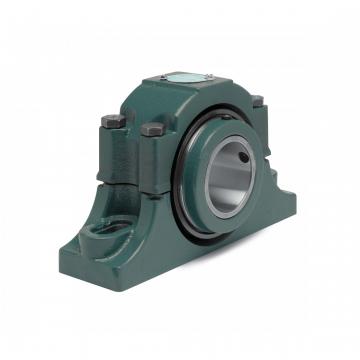 Mounted Tapered Roller Bearings P4B-EXL-212RE
Mounted Tapered Roller Bearings P4B-EXL-212RE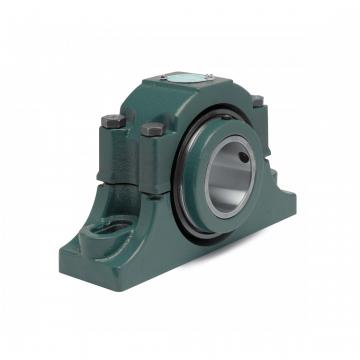 Mounted Tapered Roller Bearings P4B-EXL-400R
Mounted Tapered Roller Bearings P4B-EXL-400R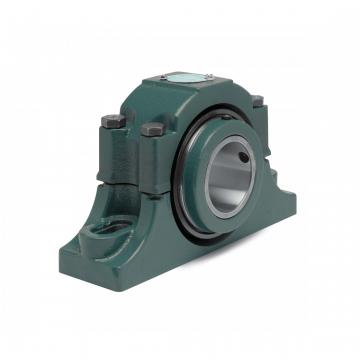 Mounted Tapered Roller Bearings P4B-EXL-400RE
Mounted Tapered Roller Bearings P4B-EXL-400RE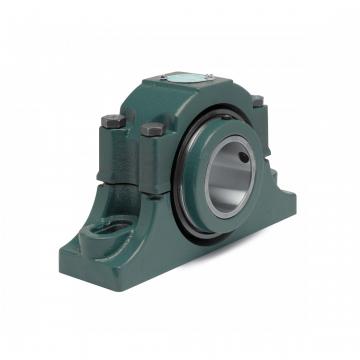 Mounted Tapered Roller Bearings P4B-EXL-315RE
Mounted Tapered Roller Bearings P4B-EXL-315RE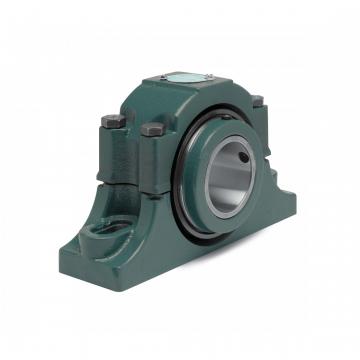 Mounted Tapered Roller Bearings P4B-EXL-207RE
Mounted Tapered Roller Bearings P4B-EXL-207RE